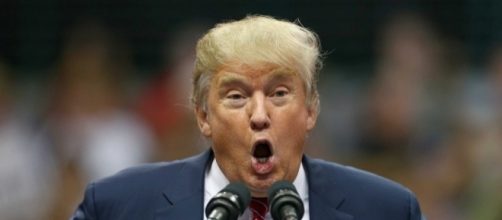Donald Trump has long talked about his plan to increase the United States military, but never went into detail about how he would offset the cost. In a recent proposal to Congress, the president has suggested that hundreds of millions of dollars be cut from AIDS research and relief.
Trump on budget
One prerequisite to run as a Republican candidate is to support an increase in military spending and the defense budget. Despite the United States having the largest military in the world, conservative don't believe that enough resources and taxpayer dollars have been invested into national defense.
During the 2016 presidential election, Donald Trump promised to build up American defense, while accusing former presidents Barack Obama and George W. Bush of hurting the military over the last 15 years. In his latest proposal, the former host of "The Apprentice" has called for a $30 billion increase to the military, but has recommended critical cuts to other programs, as reported by CNN on March 29.
In an attempt to balance his potential $30 billion defense increase, Donald Trump sent a list of recommendations to Congress in an attempt to cut other areas of the budget by $18 billion. CNN reports that the largest cuts come in the form of education, health services, and labor, with universities feeling the brunt of the blow through the removal of several grants.
Under Trump's suggestion, the Centers for Disease Control and Prevention would see a cut of $314 million, with other programs, like AmeriCorps and the Senior Community Service Employment Program, both seeing a decrease in funding by over $400 million each.
AIDS cut
In one of the most alarming areas that Donald Trump wants to see slashed is to President's Emergency Plan for AIDS Relief, known as PEPFAR, which was created during the George W. Bush administration and continued under Barack Obama. If Congress followed Trump's plan, $292 million would be cut from the AIDS relief program. As of press time, it's not known how much, if any, Congress will attempt to cut in order to allocate money to the defense budget increase.

